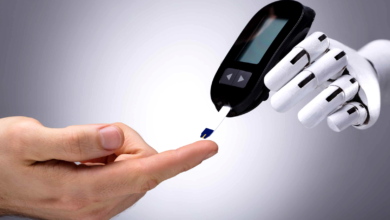What Are The Reasons For Burning Urination?

burning feeling while passing urine, often accompanied by a frequent urge to urinate. Understanding the diverse reasons behind this discomfort is crucial for appropriate diagnosis and effective management. The causes of burning urination can range from common infections like urinary tract infections (UTIs) to more complex conditions such as kidney stones or sexually transmitted infections (STIs). Identifying the underlying cause is vital for individuals seeking relief from this discomfort and looking to prevent its recurrence.
Recognizing the causes of burning urination allows for a proactive approach to manage this symptom effectively. Exploring the underlying reasons behind the burning sensation during urination can assist individuals in adopting suitable preventive measures and seeking timely medical intervention. By shedding light on these reasons, individuals can better understand the condition and take steps towards addressing and alleviating the discomfort associated with burning urination.
Understanding Burning Urination
Experiencing a burning sensation during urination, medically termed dysuria, often indicates underlying health issues. This uncomfortable sensation involves a feeling of stinging or burning while passing urine. The intensity of this sensation can vary, often accompanied by a frequent urge to urinate, which can disrupt one’s daily routine.
The discomfort associated with burning urination may signal various health concerns. Identifying the root cause is essential for appropriate treatment and relief from this discomfort. Understanding why this sensation occurs is pivotal in addressing and managing burning urination effectively.
Causes of Burning Urination
Infections
The sensation of burning during urination can stem from various underlying reasons, often indicating potential health issues. Common causes include:
Urinary Tract Infections (UTIs)
Bacterial infections in the urinary tract, affecting the bladder, urethra, or kidneys, can result in discomfort during urination.
Sexually Transmitted Infections (STIs)
Certain sexually transmitted infections like chlamydia or gonorrhea can lead to a burning sensation while urinating.
Dehydration
Inadequate fluid intake can cause concentrated urine, leading to irritation in the bladder and urethra, resulting in discomfort during urination.
Kidney Stones
The presence of kidney stones, formed from crystallized minerals in the urinary system, can cause severe pain and discomfort during urination.
Identifying the specific cause of burning urination is essential for appropriate treatment and relief from this discomfort.
Read More: Types of Kidney Disease: A Comprehensive Guide
Causes of Burning Urination
Apart from infections, several medical conditions can cause burning urination:
Causes of Burning Urination
Burning urination, characterized by discomfort or a burning sensation while urinating, can stem from various underlying causes. Some common reasons include:
Urinary Tract Infections (UTIs)
Bacterial infections in the urinary tract, affecting the bladder, urethra, or kidneys, often result in a burning sensation during urination.
Sexually Transmitted Infections (STIs)
Certain sexually transmitted infections such as chlamydia or gonorrhea can lead to discomfort and a burning sensation during urination.
Dehydration
Inadequate intake of fluids can lead to concentrated urine, causing irritation in the bladder and urethra, resulting in discomfort during urination.
Kidney Stones
The presence of kidney stones, formed from crystallized minerals in the urinary system, can cause intense pain and discomfort, especially during urination.
Understanding these potential causes is crucial in determining the appropriate treatment and management of burning urination. Identifying the specific underlying cause is essential for effective relief and treatment of this discomfort.
Treatment Options
Addressing the discomfort of burning urination involves various treatment approaches. The choice of treatment depends on the underlying cause and the severity of the condition. Two main categories of treatment are commonly considered: home remedies and medical interventions.
Home Remedies
For mild cases of burning urination, individuals can try home remedies to alleviate the discomfort. These may include:
- Increased Hydration: Drinking plenty of water can help dilute urine, reducing irritation in the urinary tract.
- Warm Compresses: Applying a warm compress to the lower abdomen can provide some relief.
- Cranberry Juice: Cranberry juice is often used for its potential to help combat urinary infections.
- Avoid Irritants: Reducing the intake of irritants such as caffeine, alcohol, and spicy foods can help minimize discomfort.
Medical Interventions
In more severe cases of burning urination, medical interventions may be necessary to address the underlying causes. These interventions often involve:
Prescription Medications
Physicians may prescribe antibiotics to treat bacterial infections, such as urinary tract infections (UTIs), targeting the root cause of the discomfort during urination.
Surgical Procedures
For severe conditions like kidney stones or anatomical abnormalities, surgical intervention might be required to provide resolution and relief from the discomfort associated with burning urination.
Consulting a healthcare professional is vital to determine the appropriate medical intervention according to the specific condition and severity, enabling effective relief from the discomfort.
Hydration
Adequate hydration is crucial to prevent concentrated urine that can cause irritation in the urinary tract. Drinking plenty of water helps in diluting urine, reducing the likelihood of infections and discomfort during urination.
Personal Hygiene
Maintaining proper personal hygiene, especially in the genital area, can help prevent the occurrence of urinary tract infections and related discomfort. This includes regular cleansing and care, particularly after sexual activity, to reduce the risk of infections causing burning sensations during urination.
Implementing these preventive measures is essential for reducing the likelihood of experiencing discomfort during urination. By staying hydrated and maintaining good personal hygiene practices, individuals can significantly lower the risk of encountering burning urination and related discomfort.
Read More: 11 Risk Factors for Respiratory Infections
Conclusion
Burning urination, characterized by a discomforting sensation during the act of urinating, can be indicative of various underlying health issues. Understanding the potential causes, seeking appropriate medical attention, and adopting preventive measures are essential in addressing and managing this discomfort. By recognizing the underlying factors contributing to burning urination, individuals can take proactive steps to alleviate this symptom and improve their overall well-being. Seeking timely medical advice and adopting preventive measures are crucial in managing and mitigating the discomfort associated with burning urination.
FAQs
1. Can stress or anxiety cause burning urination?
While stress or anxiety can impact overall health, they typically don’t directly cause burning urination. However, stress might exacerbate certain underlying conditions that can lead to discomfort during urination.
2. Are there specific foods that can trigger dysuria?
Some foods, like spicy dishes, caffeine, and alcohol, may irritate the bladder and contribute to a burning sensation during urination for some individuals.
3. Is burning urination only a concern for adults?
While burning urination is more common in adults, children can also experience it due to various reasons, such as infections or dehydration.
4. Can untreated urinary tract infections lead to severe complications?
Yes, untreated UTIs can escalate to severe conditions like kidney infections, which might necessitate immediate medical attention.
5. Are the symptoms of UTIs different between men and women?
While both genders can experience similar symptoms like a burning sensation, men might have additional symptoms such as rectal pain or painful ejaculation in UTIs.







